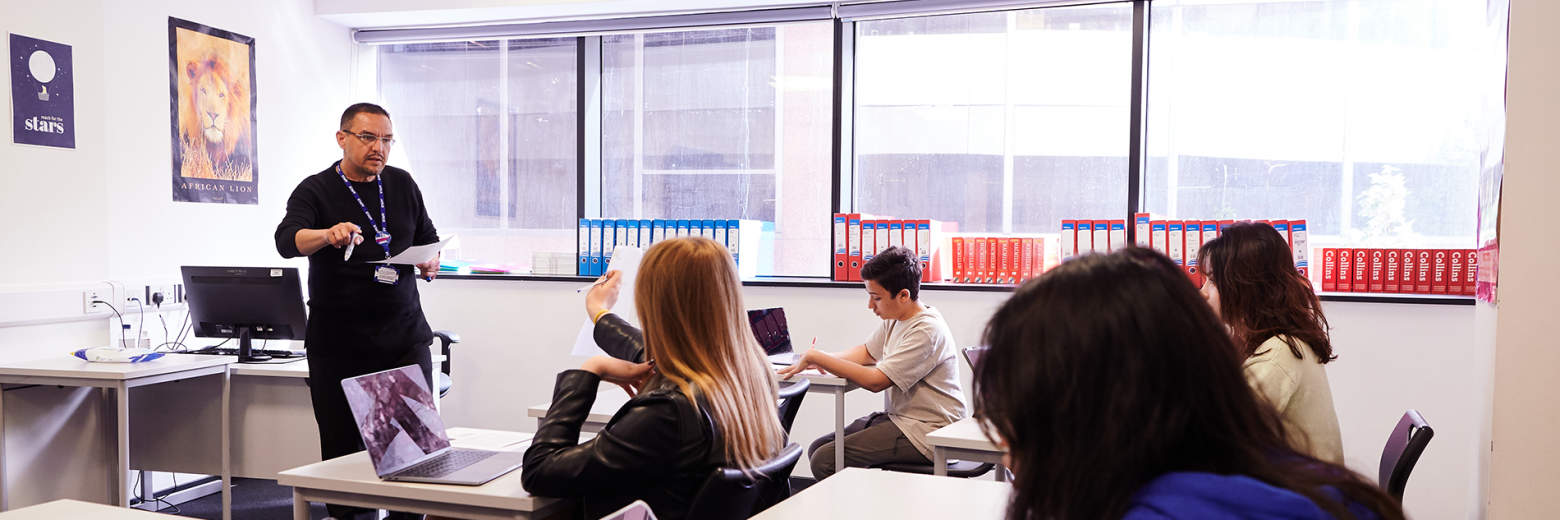English Literature
During this course you will study an engaging selection of texts ranging from British heritage to modern international.
This is a linear qualification, meaning that all components assess at the end of the course.
What is GCSE English Literature?
By studying GCSE English Literature you will develop your analytical skills by reading a wide range of literary texts. You will study and explore some of the most important books from literary history.
What will I study in GCSE English Literature?
This course follows the Edexcel IGCSE English Literature specification.
The aims of the course are to enable students to:
- engage with and develop the ability to read, understand and respond to a wide range of
literary texts from around the world - develop an appreciation of the ways in which writers achieve their literary effects
- to develop the skills needed for literary study
- explore, through literature, the cultures of their own and other societies
- find enjoyment in reading literature and understand its influence on individuals and
societies.
Why Should I study GCSE English Literature?
What A-Levels can it lead to?
Studying English Literature sits well with essay-based subjects which require a great deal of weighing evidence and evaluation such as History, Classical Civilisation, Drama, Film Studies, Government and Politics and, of course, English Literature itself. Many high-achieving English Literature A-Level students also go on to do an EPQ in Year 12.
What careers can it lead to?
English Literature is a very prestigious subject to study at university. Some of the top arts graduates are English Literature students and have gone on to careers in journalism, academia, law, the civil service, marketing and advertising. The ability to think and write independently, critically and creatively which develop when studying English Literature provides an excellent foundation on which to build a career in a wide range of spheres.
How is GCSE English Literature Assessed?
Component 1: Poetry and Modern Prose (60%)
Exam: Two Hours
Component 2: Modern Drama and Literary Heritage Texts (40%)
Coursework
Co-Curricular Activities
GCSE English Literature students have a wide variety of places to visit on their doorsteps. In the past, visits have been organised to the Globe Theatre, giving students an insight into the original performance conditions of the Shakespeare play they are studying. Trips have also been organised to see productions in West End theatres. DLD’s local museum is the Imperial War Museum which has been a rich resource for students working on the poetry of the First World War. Year 11 English Literature students have also contributed to the Humanities Review.
This year the English department has devised the Ten-Book Reading Challenge for Year 10 and 11 students. These great works of literature have been specially selected for this age group and are made available to students through the college librarian.



